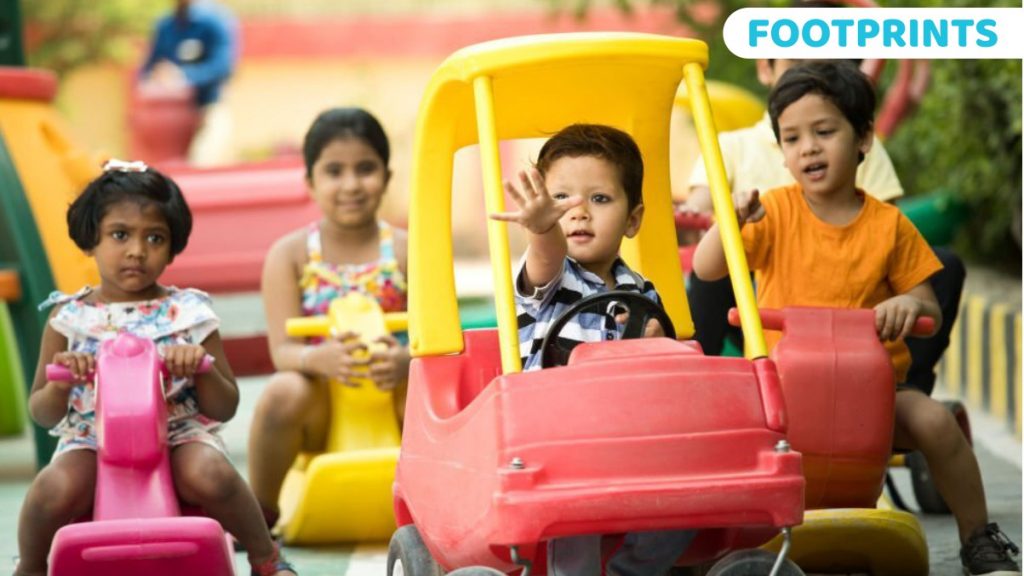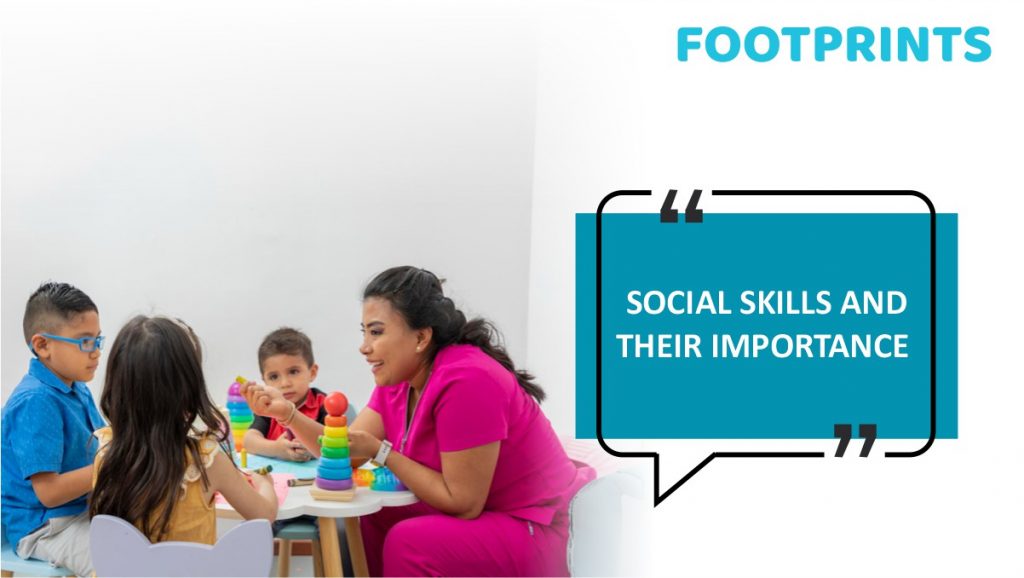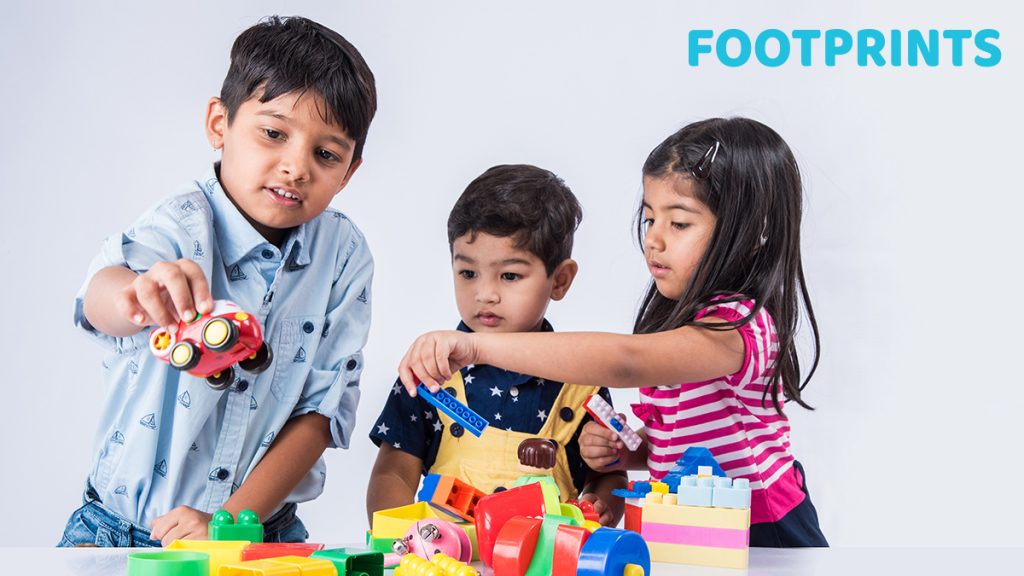
Developing social skills is a crucial aspect of a child’s growth. Children with strong social skills may engage with others well and effectively express their needs, wants, and feelings. Furthermore, having strong social skills has advantages that go far beyond acceptance and forming connections. Better social skills in children will probably pay off right away. For instance, a study indicated that children in daycare settings may experience less stress if they have strong social skills. As children mature, social skills require constant improvement. With work and repetition, these abilities can be improved and mastered. They also continue to develop with age.
Certain social skills are rather complex, such as realizing that it’s crucial to stand up for your friends when they’re being bullied or to keep quiet when the umpire calls something wrong. Seek out opportunities to help your children perform better, or teachable moments. Find out more about a few social skills that children need most and how to teach them.
Social Skills Examples
- Social communication skills, including the skills of active listening and negotiating.
- Emotional intelligence is the ability to understand one’s own as well as other’s emotions. In the event of a lack of emotional intelligence, relationships can be severely impaired.
- Teamwork.
- Conflict resolution skills.
- Problem-solving skills and more.
Essentially, then, a person with strong social skills will have the knowledge and the ability to behave appropriately in social situations.
Why are social skills necessary?
Social skills are incredibly essential for an individual so that he or she can maintain positive interactions with others. It is the friendship and peer relationships that make life that much more enjoyable. Social skills are also closely linked to emotional well-being as also developing resilience.
In fact, studies have also shown the long-term outcomes of developing social-emotional skills from an early age. When they grow up to be adults, such children are well-adjusted, have social competence, and can easily navigate the ups and downs of life. Social skills are also linked to other areas, such as conflict, stress management, etc.
That social skills also help in career progression is a given as they help you connect with team members, relate to them, and work as a team.
Given the multifaceted aspects of social skills, children must be helped in developing these skills early. What are some of the practical things you can do to help your child develop social skills? Here is a handy list.

1. Encourage Them to Communicate
First, one of the most critical aspects of developing social skills in a child is developing good communication. You must encourage them to express themselves, both through words and actions. You can model ways to help them express thoughts and ideas through your behavior. Pro tip- When children express thoughts or opinions, they mustn’t feel invalidated; sometimes, in our zeal to teach them correct language usage, we tend to interrupt their thoughts, often impacting their confidence.
2. Help Them Develop Empathy
A key component of developing long-term relationships is the ability to understand and share the feelings of another, in short, to build empathy for others. It is an essential social skill as it helps children relate to others and to build strong relationships. Therefore, the child must see things from another person’s perspective early on. You can also undertake several initiatives besides modeling this behavior to do this. Some of these include reading stories to children and stopping to discuss how a particular character showed empathy for another. You can also ask the child what he or she would have done in the character’s shoes. Such small coachable moments can go a long way in the child growing up as an empathetic individual.
3. Teach Them to Share
Developing good relationships is about giving and taking, and its foundations must be laid early. Teaching the child to share their belongings, waiting for their turn, and more are all important aspects of helping them develop this skill.
4. Conflict resolution
Conflicts are an inevitable part of social interaction. What is important is that these conflicts are resolved amicably. While it is incredibly tempting to jump into a situation where a child is having a conflict, it will work far better if you help them resolve conflicts independently unless you see a crisis brewing. Teaching them active listening and being assertive yet not aggressive will be helpful. Once again, a child learns more by what he observes than by what he is told. It is, therefore, vital for you to be a good role model and exhibit practical conflict-resolution skills.
5. Model good social behavior
Overall, modeling good social behavior by being polite and respectful of others will go a long way in the child’s imbibing these as a way of life. Simple things like greeting people when you meet them and saying sorry and thank you when the situation demands are other aspects that the child learns by observation. It is also vital that they observe your self-regulation skills.
6. Positive Reinforcement
The importance of positive reinforcement when the child exhibits good social behavior cannot be overstated. Praising them for their efforts can go a long way in helping them do even better.
Problems a child faces if they have social skill difficulties.
Some of the issues you may notice if the child has social difficulties, include:
- Inappropriate behavior
- Issues with sensory processing
- Misinterpreting instructions
- Inability to self-regulate.
- Issues with higher-order thinking and reasoning skills.
Telltale signs of the child experiencing problems with social skills
You can notice some early signs of the child experiencing problems with social skills. These include but are not limited to:
- Not maintaining eye contact
- Struggling with using the correct body language
- Showing little or no interest in what the other person is saying.
- Be unable to understand different tones of voice or facial cues.
- Talk at unusual speed.
- Failure to understand the consequences of their action.
If you feel the child needs any therapeutic intervention to help him or her improve social skills, do not hesitate to do so. It is important to remember that difficulties with social skills may also result from specific diagnoses such as Autism Spectrum Disorder, Pervasive Developmental Disorder, Asperger’s, and some other conditions. Early detection and therapy are, therefore, key.
Therapeutic intervention, where required, can go a long way in helping a child engage appropriately with others during social interactions, allowing a child to build and maintain friendships, helping develop an understanding of social norms, and more.
At Footprints, a play school that has emerged as a preferred parenting partner, we follow the scientifically developed HighScope curriculum that emphasizes supporting early learners as they make decisions, build academic skills, develop socially and emotionally, and become part of a classroom community.



